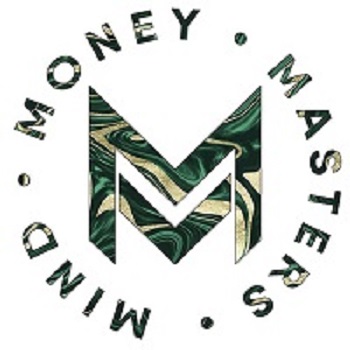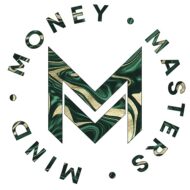Financial literacy and financial education are thrown around a lot in the personal finance arena. And to be honest, I believe this topic should be discussed in much further detail. In this review of Financial Literacy, I am going to discuss what financial literacy is, why it is important, how it can start you on a path for financial education and how true financial education can help us become financially free.
What is Financial Literacy?

Financial Literacy is defined simply as having the knowledge that can help you make informed and effective decisions with all your financial resources. And from a general perspective that is true. I would hold to the definition that financial literacy is, understanding the basics of personal finance. True financial education is beyond financial literacy. You must first, become financially literate before you can embark on the continued financial education process.
Budgeting
Budgeting is a key component of financial literacy. This can be a simple budget or more complex. I realize that budgeting can sound extremely boring, but if you do not understand what goes into your bank account and what goes out, then how can you possibly plan for the future? Most of us have autopay on various bills in our household. At the end of the day, do you “hope” that everything will get paid or do you “know” that everything will get paid. I want to avoid any and all bank fees that I can.
The key takeaway here is that you understand what is added and subtracted from your income every month. A budget can help you also understand fixed costs versus variable costs. The variable cost is something that changes every month, typically dining or entertainment. A fixed cost is something that is basically the same every month, typically mortgage, rent or auto payment. There are apps that can help you with this or if you are like me, you can create a massive spreadsheet through Excel.
Savings and Investing
I wrote another article on Savings and Investing that I would encourage you to take a look at, so I will be brief in this section. Understanding that you should save and invest is a basic fundamental concept of financial literacy, however, what to save for and what to invest in, leans more towards additional financial education. It’s important to know that you should save a portion of your income and you should invest a portion of your income, but how much, and in what? How do you know what the best savings account is or should you invest in a Mutual Fund or ETF? For that matter, what is a Mutual Fund or an ETF? This is the distinction that I draw between financial education and just financial literacy.

A general rule to follow regarding savings and investing is to “pay yourself first”. This is something most financial “gurus” would suggest, and I do not disagree. Whether that is 5 percent or 50 percent, automatically save something for yourself that can only be used for its intended purpose (i.e. vacation or big purchase). Also consider saving for a larger investment such as a rental property or additional financial education.
Financial Debt
You must take inventory of financial debt. This is a silent destroyer of dreams. I have seen many people not even realize how much debt they were in until it was too late, and the creditors were knocking down at the door. Make a list of everything you owe and add it up. I know this can be painful, but knowledge is the potential for power. The more you know about a situation, the better you can affect change on it.
Credit Interest
An important topic to bring up in this section is interest rates and how they can affect how you pay off debt. Paying off credit and becoming debt free can be a very rewarding achievement. It is not always easy, but there is an element of freedom when you pay something off. Credit interest is the additional charge for borrowing the banks money. So, in a very general understanding, if you want to borrow 1,000 dollars and the bank charges you 10 percent interest, simple interest means you would pay 1,100 dollars at the end. 1,000 dollars plus 10 percent interest gives you 1,100 dollars to pay back. I have another post on this, and for more information take a look at my Financial Debt Review post.
Why is Financial Literacy and Financial Education Important?
Now that you see what financial literacy is, it’s time to discuss why it is important. The obvious answer is that it can save you money. But it can save you in three ways; firstly, the more you know how you spend, the more aware you become and maybe won’t spend the same way (Budgeting). Secondly, the more you know about how to save or invest, the more prepared you are for the future (Saving and Investing). Lastly, the more you know about your debt, the faster you can pay it down or learn how to avoid more debt.
Financial environments are constantly changing
Financial literacy sets the stage for your financial education journey, and that is a continued and daily increase of knowledge. The financial markets and personal finance arena are changing every day. There is no way that I could just give you three items as a discussion point and call you financially educated. True financial education discusses how money flows and how we have the power to make it flow for our benefit. The more you know about finances the better you will be. The stock market was not the same 50 years ago as it was today, nor will it be the same 50 years from now.
Learn more efficient investing techniques
Financial literacy helps you get started on your journey. For example, now that you understand, from a high level view what a budget is and what several aspects of financial literacy are, you can expand your knowledge further and learn the best way to budget or the best way to invest. You can invest in Real estate or digital business. What about starting your own side business? Do you think financial education is important there? In the next section, I suggest several books that would be highly beneficial in your financial education process. These can be physical books or audio books. I prefer the physical book, but that’s just me.
Disclaimer: I receive affiliate compensation for some of the links in this article at no cost to you. However, these are the best tools I have used and tested that I believe are most effective for launching and running an online business. You can read our full affiliate disclosure in our privacy policy.
Conclusion
Financial literacy is extremely important today and does not get enough press. My goal is providing the best possible source of true financial education. Becoming financially literate is just the first step to true success, but it is the most important step. Learning more everyday should be the ultimate goal. Everything in this world changes so rapidly, that includes the world of personal finance. I would encourage you to read some additional books on financial education that I have found extremely helpful; ‘The Millionare next door’, ‘Unshakable’ and ‘Rich dad, poor dad’ are three books I found very helpful on my journey. They are all very inexpensive and very quick reads. Thank you for reading and I hope you enjoyed a brief look into financial literacy.
Before you go…
If you want to learn how you can take ANY business and scale it to your dreams and goals?
Partner up with me by clicking on this link and watching the video.
We will show you EXACTLY how to build a business online and customize a plan just for you. We will help you choose a niche, setup your online business and help with selecting offers that you can promote.
On top of that you will get ONE on ONE mentoring to make sure you are doing things right.
A great way to be able to save more money is when we make more money.
Cheers to your success and See you at the Top!
-Cameron


